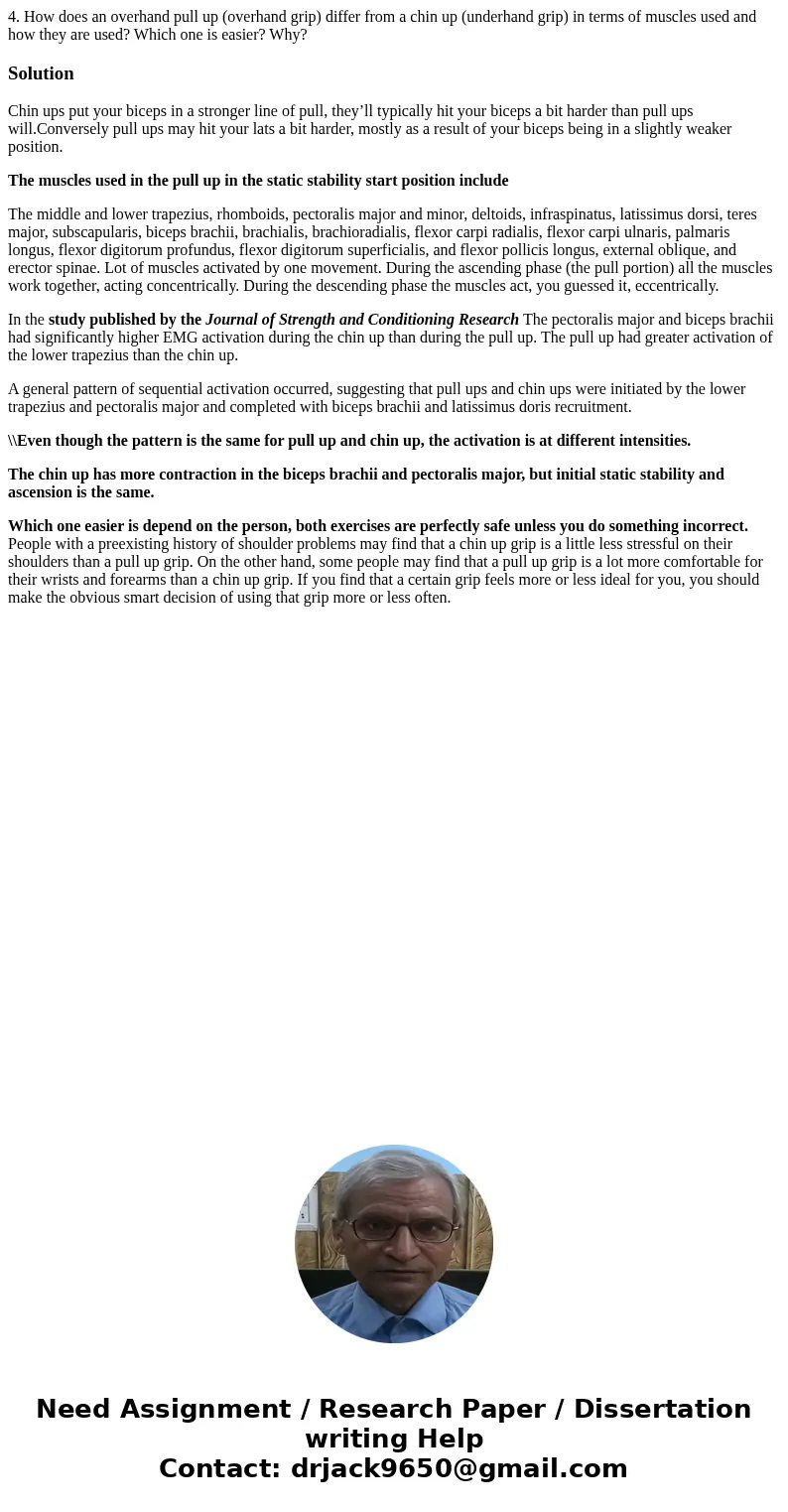4 How does an overhand pull up overhand grip differ from a c
4. How does an overhand pull up (overhand grip) differ from a chin up (underhand grip) in terms of muscles used and how they are used? Which one is easier? Why?
Solution
Chin ups put your biceps in a stronger line of pull, they’ll typically hit your biceps a bit harder than pull ups will.Conversely pull ups may hit your lats a bit harder, mostly as a result of your biceps being in a slightly weaker position.
The muscles used in the pull up in the static stability start position include
The middle and lower trapezius, rhomboids, pectoralis major and minor, deltoids, infraspinatus, latissimus dorsi, teres major, subscapularis, biceps brachii, brachialis, brachioradialis, flexor carpi radialis, flexor carpi ulnaris, palmaris longus, flexor digitorum profundus, flexor digitorum superficialis, and flexor pollicis longus, external oblique, and erector spinae. Lot of muscles activated by one movement. During the ascending phase (the pull portion) all the muscles work together, acting concentrically. During the descending phase the muscles act, you guessed it, eccentrically.
In the study published by the Journal of Strength and Conditioning Research The pectoralis major and biceps brachii had significantly higher EMG activation during the chin up than during the pull up. The pull up had greater activation of the lower trapezius than the chin up.
A general pattern of sequential activation occurred, suggesting that pull ups and chin ups were initiated by the lower trapezius and pectoralis major and completed with biceps brachii and latissimus doris recruitment.
\\Even though the pattern is the same for pull up and chin up, the activation is at different intensities.
The chin up has more contraction in the biceps brachii and pectoralis major, but initial static stability and ascension is the same.
Which one easier is depend on the person, both exercises are perfectly safe unless you do something incorrect. People with a preexisting history of shoulder problems may find that a chin up grip is a little less stressful on their shoulders than a pull up grip. On the other hand, some people may find that a pull up grip is a lot more comfortable for their wrists and forearms than a chin up grip. If you find that a certain grip feels more or less ideal for you, you should make the obvious smart decision of using that grip more or less often.

 Homework Sourse
Homework Sourse